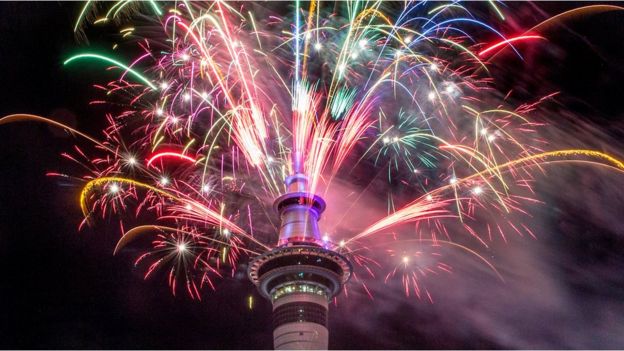Celebrations have begun as people around the world ring in the New Year.
From Sydney to Pyongyang, festive crowds gathered to say goodbye to 2016, a tumultuous year in global politics.
Earlier, Auckland in New Zealand became the first major world city to welcome the New Year.
Many cities around the world have stepped up security for New Year’s Eve celebrations, after a year in which attackers drove lorries into crowds in Berlin in Germany and Nice, France.
Thousands of extra police will be on duty in London and other cities.
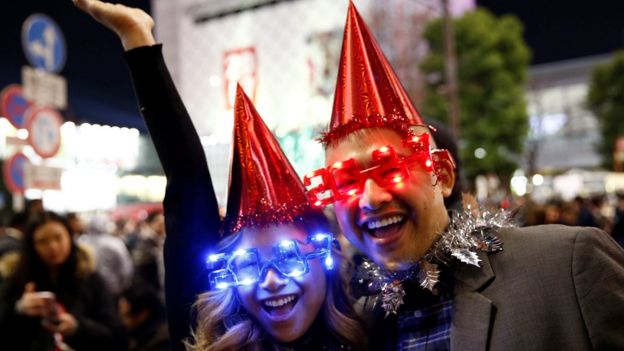 A countdown event was held at the famous Shibuya crossing in Tokyo, Japan
A countdown event was held at the famous Shibuya crossing in Tokyo, JapanIn Paris, Madrid and New York, concrete barriers and heavy goods vehicles will be used to block off central squares where crowds gather to celebrate.
Some 17,000 police officers will be on duty in the Turkish city of Istanbul, with some disguised as Santa Claus and street vendors, the state-run Anadolu news agency reported.
The iconic midnight fireworks display at Sydney Harbour in Australia paid tribute to Prince and David Bowie, two music superstars who died in 2016.
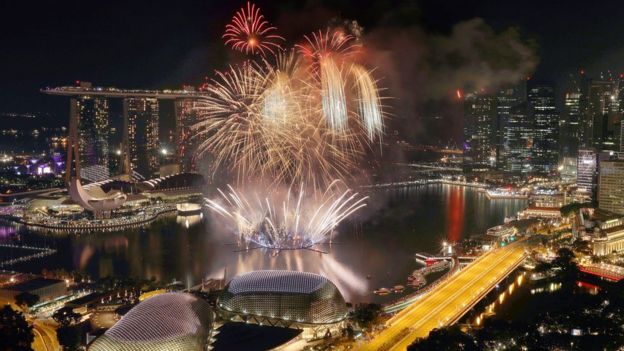 Singapore and several other Asian countries have already rung in the New Year
Singapore and several other Asian countries have already rung in the New Year“This year, sadly, we saw the loss of many music and entertainment legends around the world,” fireworks co-producer Catherine Flanagan said.
“So celebrating their music as part of Sydney New Year’s Eve fireworks displays is an opportunity to reflect on the year that has been and what the future may hold.”
Seven tonnes of fireworks were set off in two displays watched by about one and a half million people.
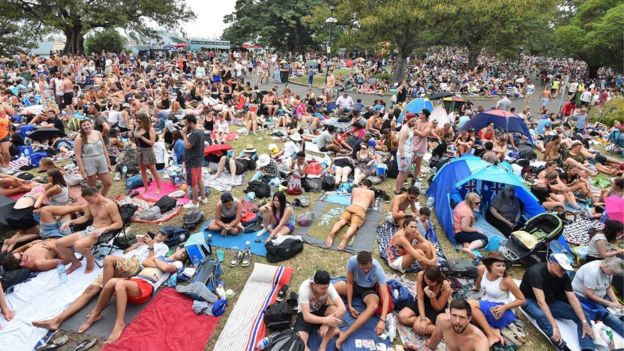 Crowds gathered early to wait for the fireworks at Sydney Harbour
Crowds gathered early to wait for the fireworks at Sydney HarbourPacific islands including Samoa, Tonga and Kiribati entered 2017 at 10:00 GMT, followed an hour later by Auckland, where fireworks erupted from the 328m (1,080ft) tall Sky Tower in the city centre.
Police said he was charged with a “crimes act offence, but not a terrorist offence” and there was no continuing threat to the community.
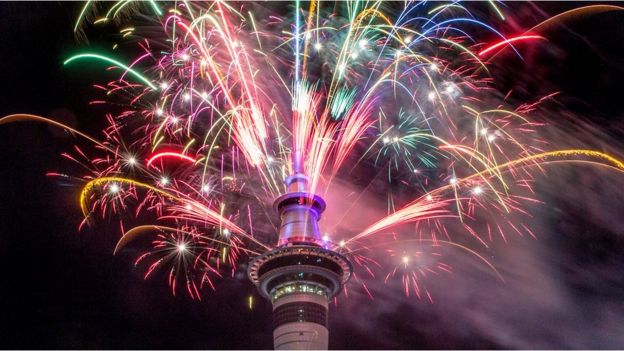 Large crowds gathered for the fireworks display at Auckland’s Sky Tower
Large crowds gathered for the fireworks display at Auckland’s Sky Tower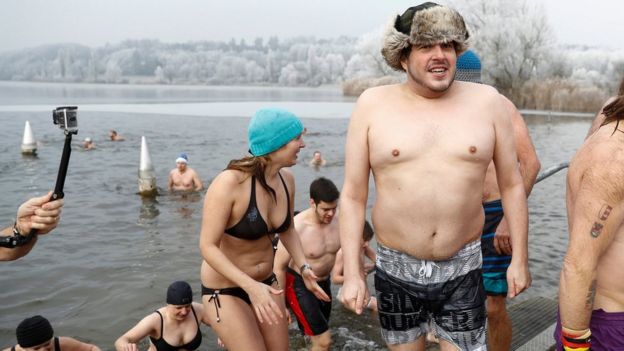 Swimmers emerge from 4C (39F) water after a traditional New Year’s Eve swim in Moosseedorf, Switzerland
Swimmers emerge from 4C (39F) water after a traditional New Year’s Eve swim in Moosseedorf, SwitzerlandIsrael has also warned its citizens travelling in India to avoid crowds, saying there is a risk of imminent “terrorist attacks”.
‘Many enemies’
Meanwhile, US President-elect Donald Trump tweeted New Year greetings, including to his “many enemies”.
Mr Trump will be sworn in as US president on 20 January.
 Image copyright TWITTER
Image copyright TWITTER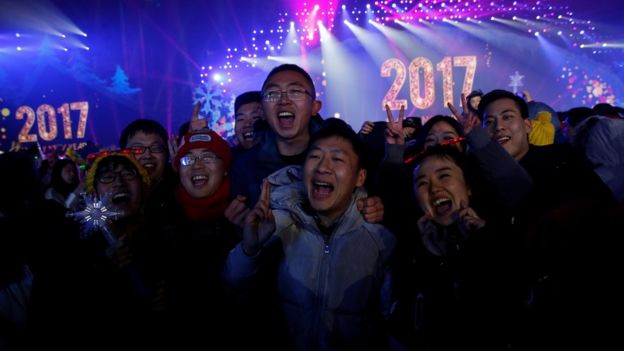
A “leap second” will be added to the countdown in countries in the GMT timezone including the UK to compensate for a slowdown in the Earth’s rotation.
The extra second will occur as clocks strike midnight and a time of 23:59:60 GMT will be recorded, delaying 2017 momentarily.
This is required because standard time lags behind atomic clocks.
Courtesy: BBC

